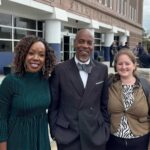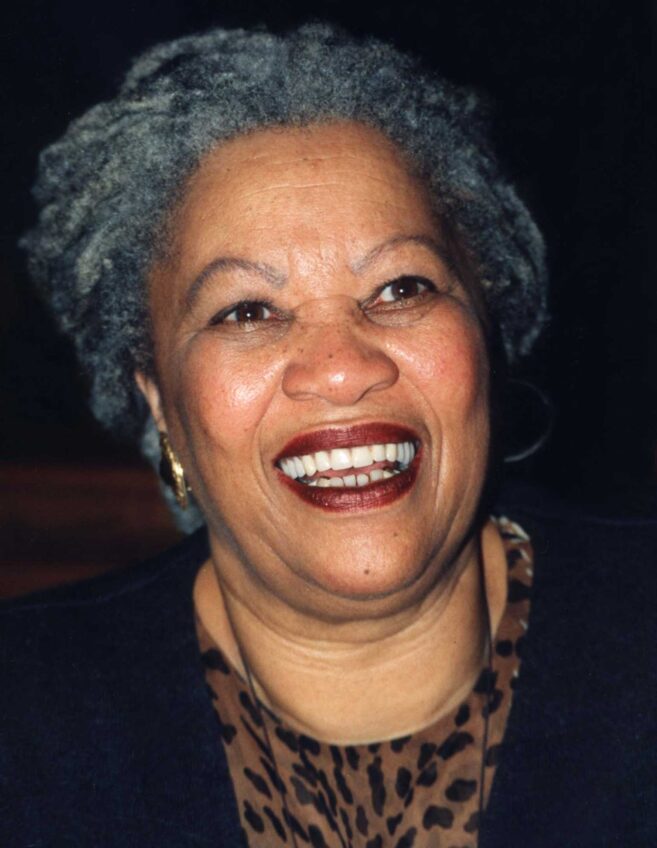There is a movement afoot to honor the segment of society Malcolm X famously said was the most disrespected in the nation — Black women. And this movement isn’t waiting on anyone’s permission.
Though not a federally recognized observance, individuals and organizations in several cities and states across the country annually designate April as International Black Women’s History Month (IBWHM).
Why important
In 2016, Sha Battle, a native Georgian and entrepreneur, “established April as International Black Women’s History Month … in the city of Atlanta to uplift and support the achievements of Black and minority women, and to build understanding and awareness of the contributions of Black women to the world.”
In 2024, the Commonwealth of Virginia made it a state holiday.
In Houston — though not an officially observed month in the state of Texas — several local historymakers, in their rights, participate in the festivities, seeing the monthlong observance as essential.
“When we focus on Black history, most of the time we’re spotlighting men, and Black women have tended to take a backseat,” said Texas Southern University history professor Tomiko Meeks, commenting on the need for IBWHM. “The same is true when you look at Women’s History Month. People tend to celebrate white women. So, where do Black women stand in that?”
Linda Brown, president and CEO of the Houston-based Advantage Communications Media Group, describes Black women’s history as “wonderful and vibrant.” And necessary.
“It’s important, especially since our history is not being taught in our school systems anymore, that we do have an acknowledged Black Women’s History Month so that we can get the information out to people who are not aware, [including] the next generation.”
“We have got to do a better job in terms of teaching our young ones the many, many contributions that [Black women] have made to this society, to this country, to this world, so that they’ll know from whence they came and can move forward,” added Brown.
Meeks says another reason IBWHM is important is because Black women are often vilified in the media and labeled as angry.
“It’s important for society as a whole and the world even to understand that the Black woman is the backbone. One of my really good friends and colleagues, Dr. Kimberly Brown Pellum, says, ‘Black women are the standard,’ and I think that’s true, even when people choose not to acknowledge that,” said Meeks.
Dr. Kim Baker wears many hats, including professor, community researcher, a leader for reproductive freedom and change and co-founder of The Re-Collective, a leadership development movement. Baker, like many, recently discovered IBWHM.
“As someone who is just coming to the realization that such a month exists, it confirms for me how necessary it is for Black women to carve out this space to the platform and acknowledge how much history we’ve contributed to this nation and globally,” said Baker.
Baker believes Black women can gain valuable knowledge about the importance of history and traditions that can propel them forward.
Kim Topps, an engineer by day as well as an author, life coach and Christian influencer, believes IBWHM offers benefits to all people.
“As a person who owns a career coaching company who works with all types of different clients, I think it’s important for us to not only understand our own history and our own culture, but there are so many different stories that we don’t know about because nobody’s sharing it,” Topps said. “That’s why it’s important for the journalists to be intentional about interviewing people of color, interviewing women, and putting that information out and sharing it with the world. Because if you don’t, then who will?”
Benefits to Black community
Baker views IBWHM as a vehicle for propelling the Black community forward.
“When I think of Black women’s history, I think of social movements. I think of even beyond the Civil Rights Movement, even during the reconstruction period,” said Baker. “So much of our community was built through the work of Black women; churches and schools, education, laying the foundation and fabric.
“Right now a lot of talk is around this dismantling of education. And I think about how much history Black women have contributed to building our own schools when we didn’t have a choice, educating our young people are just keeping the community together.”
Baker sees IBWHM as propelling Black people to engage in that same community-building work today and passing it on to future generations.
“I’m just also thinking about the future generations and making sure our kids know the contribution so that they can grow up with that respect, with that reverence and that understanding,” said Baker. “We just want free communities where we can raise our young people and love on our elderly.”
Appreciate the unappreciated
IBWHM also affords participants the opportunity to teach and learn about more Black women than the “usual suspects.”
“We usually focus on the ones we hear about all the time, the Rosa Parks, the Maya Angelous, the Coretta Scott Kings, and they are very much so important,” said Brown. “But there’s so many more from our country as well as across the world. We have a diaspora of many women that we need to focus on,” she said, sharing names like STEM genius Valerie Thomas, who created the 3D optical illusion transmitter; Marjorie Joyner, creator of the permanent-waving machine; and Ella Baker, an unsung Civil Rights Movement giant.
“It’s important that we inspire our future generations by giving them the information that we are sharing and that we recognize our ongoing struggles because that’s part of our history. If we don’t recognize that, then we can’t come up with solutions about how we advance to the next level,” added Brown.
Meeks celebrates under-appreciated Black women and girls via her doctoral dissertation topic.
“I write about African American girls who were living in the antebellum period, 1820 to 1860, and chose to deliberately resist slavery,” she said. “These young Black girls were forced to really be adults and lost their childhoods.”
Meeks, who says her work builds on the scholarship of other Black women scholars such as Wilma King and Nikki Taylor, believes the agency (the power to decide, create and advocate for one’s self) that Black people lacked during enslavement is still an issue today.
“Taking that agency away from children and seeing that Black children were actively doing things to take back their agency [actively resisting enslavement], take back their bodily autonomy, it’s been really interesting,” said Meeks, who believes today’s Black youth, especially girls, can experience that same level of empowerment.
Topps listed astronaut Dr. Mae Jemison as someone who deserves more attention, especially during IBWHM. But Topps didn’t stop there.
“But then I think of people like my aunt, Willie Dean Floyd, who was the first Black executive director at the YWCA,” she said. “I think about her leadership. I think about people just in my own circle. My mother, Una Topps, 82 years old, retired educator, 45 years. She still goes back in to teach because she wants to make sure that people never stop learning.”
This article was originally published on Defender Network.






